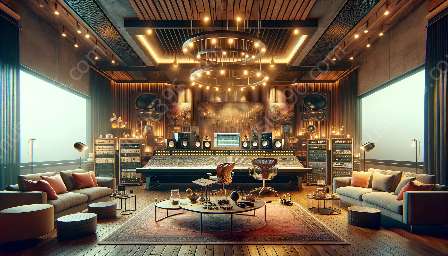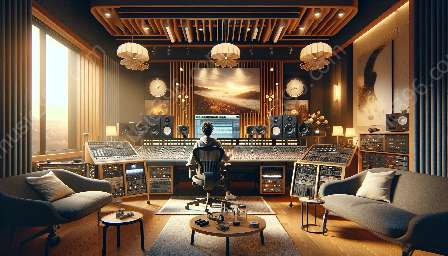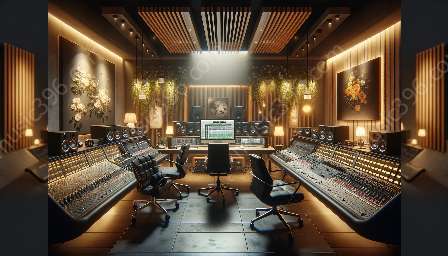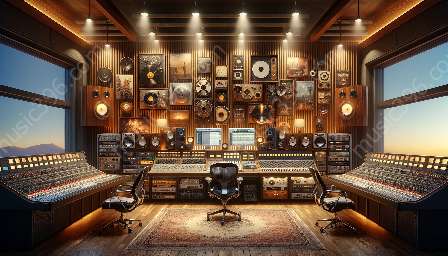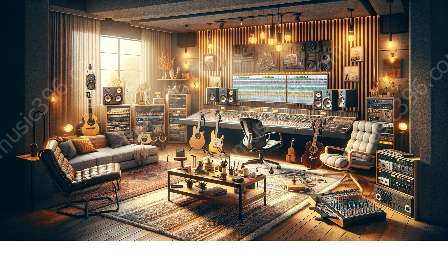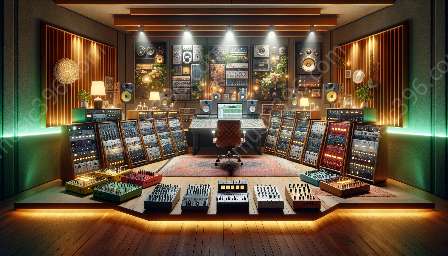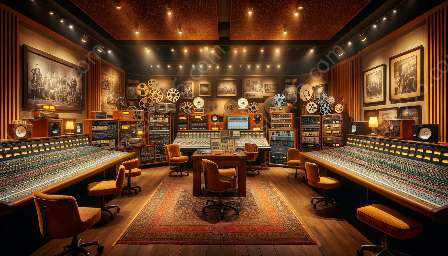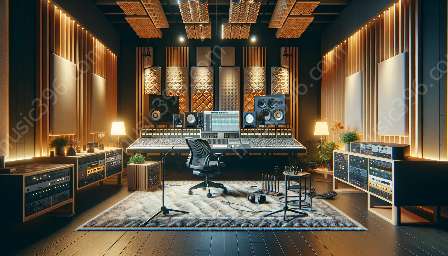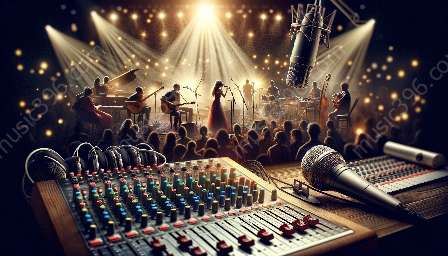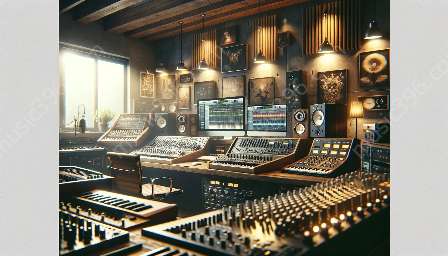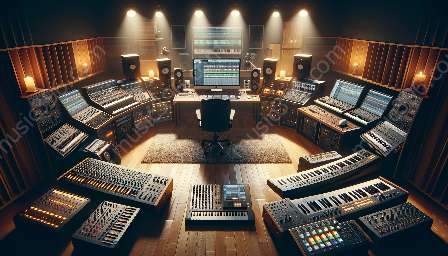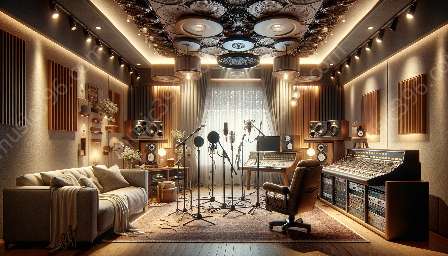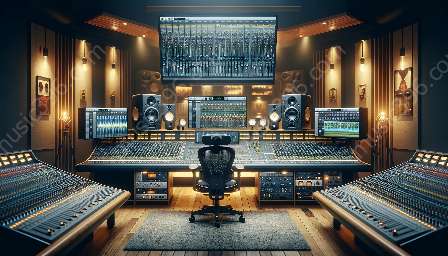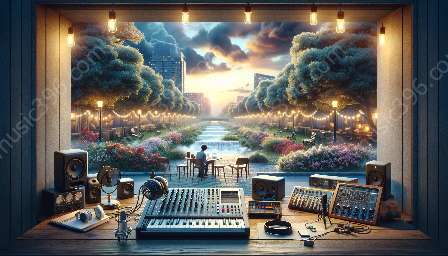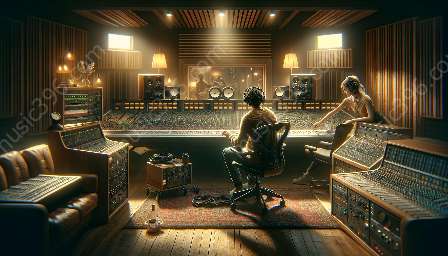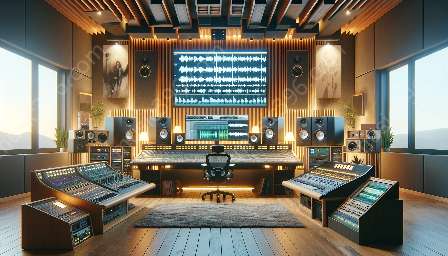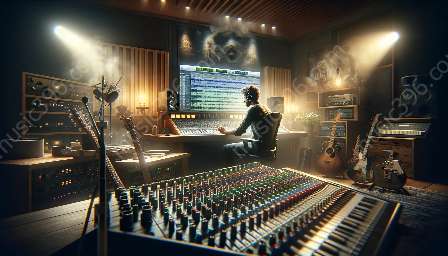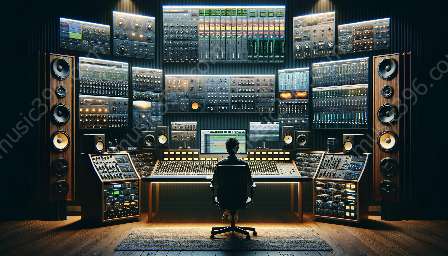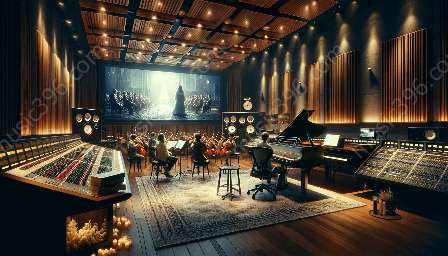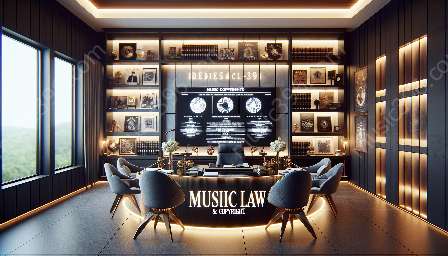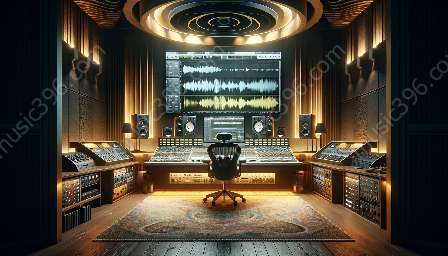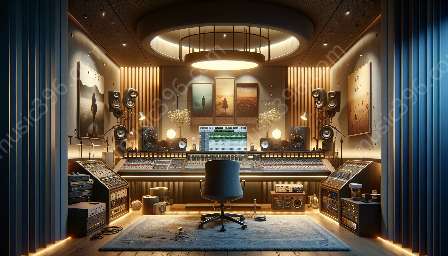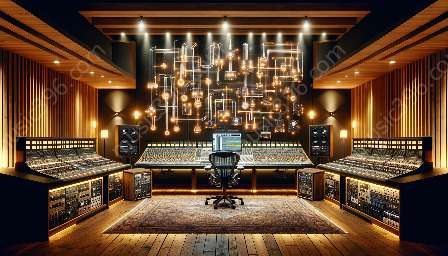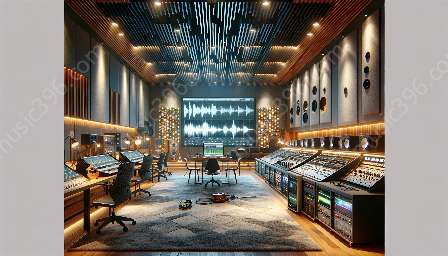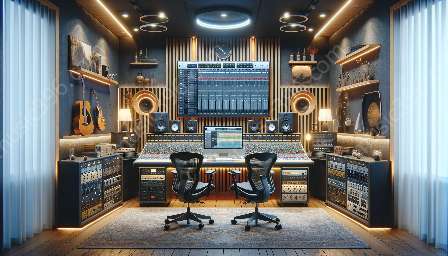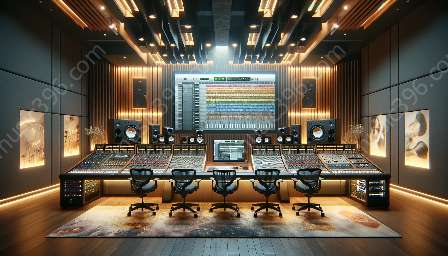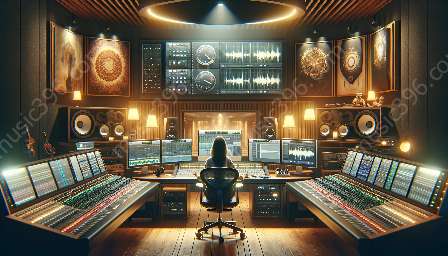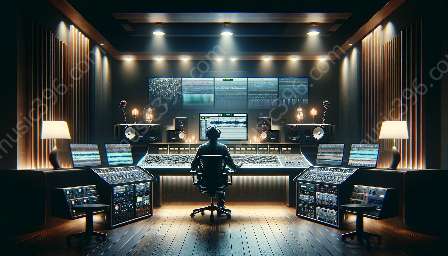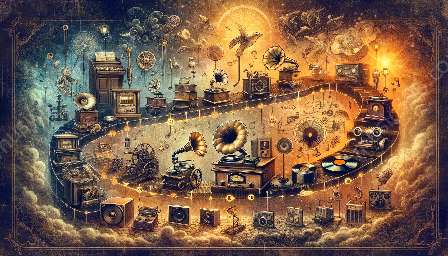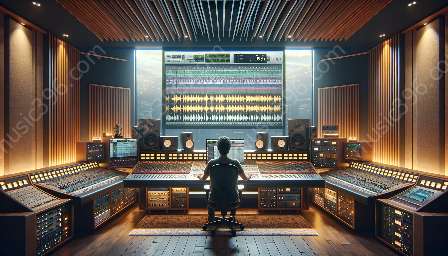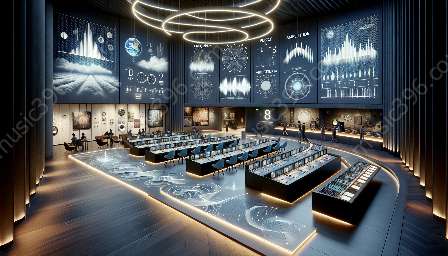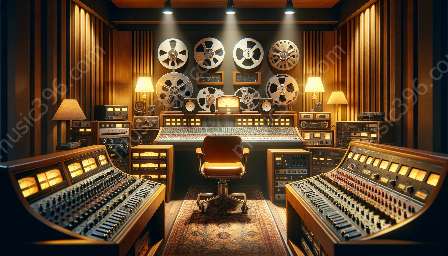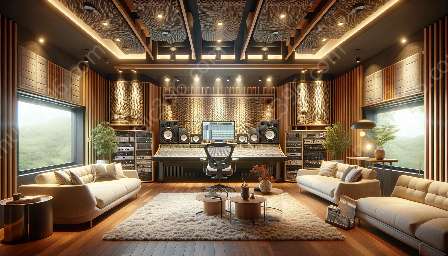Acoustics play a critical role in the success of a recording studio, directly impacting the quality of music production and recording. Understanding the significance of acoustics in the studio environment is essential for creating an optimal space for capturing high-fidelity audio. In this topic cluster, we'll delve into the importance of acoustics in relation to the basics of music production and music recording, providing valuable insights and practical tips for achieving optimal acoustics in a recording studio.
Understanding Acoustics in a Recording Studio
Before exploring the specific impact of acoustics in a recording studio, it's important to understand the fundamentals of acoustics. Acoustics refers to the science of sound, encompassing the study of how sound waves propagate and interact with various surfaces and materials within a given space. In a recording studio environment, the goal of acoustics is to create an environment where sound can be captured and reproduced with high fidelity, free from unwanted reflections, resonances, or distortions.
The Impact on Music Production
Acoustics significantly influences the music production process, from the initial recording stages to the final mixing and mastering. A well-designed studio with optimal acoustics provides an accurate representation of sound, allowing producers and engineers to make informed decisions during recording and mixing. Conversely, poor acoustics can lead to inaccurate monitoring and sonic inconsistencies, ultimately affecting the quality of the final music production.
The Influence on Music Recording
When it comes to music recording, acoustics directly affect the clarity and depth of recorded audio. A recording studio with proper acoustics minimizes external noise interference, enhances instrument separation, and allows for the capture of clean, natural sound. This is particularly crucial for capturing live performances, where the authenticity and energy of the music depend on the acoustic integrity of the recording environment.
Creating an Acoustically Optimal Space
Now that we understand the importance of acoustics in a recording studio, let's explore the key elements of creating an acoustically optimal space for music production and recording.
Room Design and Layout
The physical layout of a recording studio plays a critical role in its acoustics. Factors such as room dimensions, wall construction, and placement of sound-absorbing materials all contribute to the overall sound quality within the space. Professional studio designers carefully consider these factors to minimize unwanted reflections and ensure balanced room resonance.
Acoustic Treatment
Strategic placement of acoustic treatment materials, such as diffusers, absorbers, and bass traps, is essential for controlling the behavior of sound waves within the studio. These treatments help to minimize reflections, eliminate flutter echoes, and address low-frequency issues, ultimately enhancing the clarity and accuracy of recorded audio.
Monitoring and Playback System
The choice of studio monitors and playback system is another critical aspect of achieving optimal acoustics. High-quality monitors, paired with accurate room calibration and positioning, enable precise monitoring of recorded audio, ensuring that mixing decisions are based on truthful representations of sound.
Isolation and Soundproofing
Effective isolation and soundproofing measures are essential for maintaining a controlled recording environment, particularly in shared or urban spaces. By minimizing external noise intrusion and preventing sound leakage, these measures contribute to a focused and undisturbed recording environment.
Conclusion
The importance of acoustics in a recording studio environment cannot be overstated. By understanding the impact of acoustics on music production and recording, and by implementing thoughtful design and treatment strategies, recording studio professionals can create spaces where the true essence of music can be faithfully captured and preserved.

